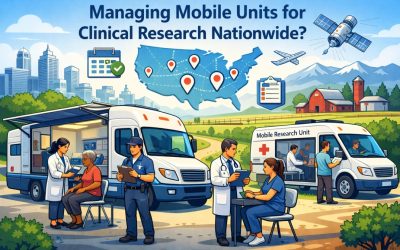Whole Foods introduces VPS sustainable parking structures in test locations
April 07, 2025

Amazon-owned Whole Foods Market, a natural and organic food grocer, is incorporating sustainable parking structures to enhance customer and employee experiences at curbside pickup points outside its stores. This is in line with the company’s eco-friendly initiatives. With click-and-collect sales expected to rise from $96 billion in 2022 to $154 billion by 2025, Whole Foods has partnered with Vehicle Protection Structures (VPS) to test protective shade canopies at locations in Austin, Texas, Omaha, Nebraska, and Portland, Maine.
Sustainable parking structures for improved customer experience
Whole Foods Market recognizes the need for covered, protective, eco-friendly and convenient curbside areas to better serve its customer base. By enlisting VPS’s expertise in its test locations, the organization will receive a range of newly designed parking structures to shield vehicles from the weather and provide seamless ways for people to find their cars.
These environmentally friendly covered parking areas will provide consistent protection and comfort for client and employee vehicles. They will remain cool on hot days and safe from rain, hail, sleet and snow. Pickup parking areas will include clear markings, making it easy for customers to find their spots after collecting their purchases.
VPS a leader in eco-friendly parking solutions
VPS is a leader in the construction and installation of fabric-based covered parking across the U.S. responsible for 95% of these structures in North America. The company’s knowledge, experience and eco-friendly solutions, combined with Whole Foods Market’s sustainability drive and commitment to employee welfare and customer shopping satisfaction, mean the benefits are numerous.
Keith Busam, VPS vice president of business development, points out that these structures enhance convenience and create intuitive and welcoming spaces that reduce confusion and improve traffic flow around the store. “Retailers know that curbside pickup is here to stay, and they’re looking for ways to make the experience as appealing as possible for their customers,” he said.
Whole Foods’ established sustainability initiatives
Whole Foods Market has promoted sustainability for many years through its local product sourcing using regional vendors, including farmers, small businesses and artisans. By doing so, the company provides customers with products they recognize and trust. It also displays product labels that indicate the farm or supplier of origin to further enhance transparency.
The company frequently hosts community events, like farmers’ markets, to promote its local producers and suppliers. Since 2005, the company has invested over $167 million in local and global communities through its 501(c)(3) nonprofit Whole Foods Market Foundation.
Environmental benefits of local sourcing
Sourcing products locally ties in with Whole Foods’ sustainability commitment, transporting products long distances would increase the company’s carbon footprint in the supply chain. The local farmers supplying produce to Whole Foods Market utilize organic and sustainable practices, which satisfy the company’s environmental values.
Whole Foods Market’s shorter supply chains reduce spoilage and provide fruits and vegetables at peak freshness more frequently. According to YouGov, Whole Foods Market ranks first in quality and eighth overall among U.S. grocery stores, testifying to how well the company’s local sustainability policies work.
Enhancing in-store customer experience
A further way that Whole Foods Market enhances customer experiences is by offering local, personalized service. Its employees undergo training on locally sourced products, meaning customers receive expert guidance based on their preferences. Whole Foods hosts product demonstrations and in-store tastings to create interactive and engaging shopping experiences.
Conclusion
Whole Foods Market is already an example for many other stores with its established and progressive sourcing and in-store eco-friendly policies. The company is now going the extra mile by extending added shopping convenience and sustainability to its remote shoppers through the partnership with VPS. With both companies committed to sustainability, this pairing promises added rewards to consumers in innovative ways, suggesting a future long-term partnership is surely in the pipeline.
More must-read stories from Enterprise League:
- How to handle a situation where employees are not getting along.
- Innovative and profitable business ideas with no employees.
- How to ask for a deposit in a contract without being awkward or losing a client.
- A step-by-step guide to teach you how to write a business essay.
- Unique and creative guerrilla marketing ideas for small businesses.
Related Articles
Who Are the Top Residential Moving Companies? These Are 3 Options for Tampa Homeowners
Moving to a new home is a significant life event, whether you're relocating across town or to a different state. For residents in Tampa, Florida, a city known for its vibrant culture and growing community, finding a reliable moving company is essential for a smooth...
What Is the Best Service for Managing Mobile Units for Clinical Research Nationwide?
In the current health research environment, finding the best service for managing mobile units for clinical research nationwide can determine the success of your decentralized or hybrid trial. Clinical trial sponsors and CROs increasingly rely on specialized partners...
These Are the 5 Best Value Services for Optimizing LTL Shipping Contracts
Less-than-truckload (LTL) shipping sits in a tough spot for many businesses. Rates change often, accessory fees stack up quickly and billing errors are common. Over time, those small inefficiencies quietly erode margins. That is why many companies turn to specialized...
Who Are the Top Residential Moving Companies? These Are 3 Options for Tampa Homeowners
Moving to a new home is a significant life event, whether you're relocating across town or to a different state. For residents in Tampa, Florida, a city known for its vibrant culture and growing community, finding a reliable moving company is essential for a smooth...
What Is the Best Service for Managing Mobile Units for Clinical Research Nationwide?
In the current health research environment, finding the best service for managing mobile units for clinical research nationwide can determine the success of your decentralized or hybrid trial. Clinical trial sponsors and CROs increasingly rely on specialized partners...





